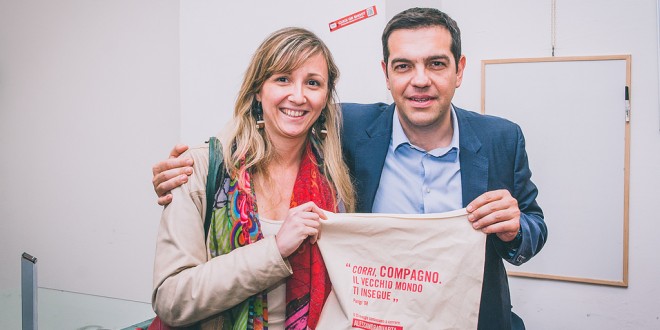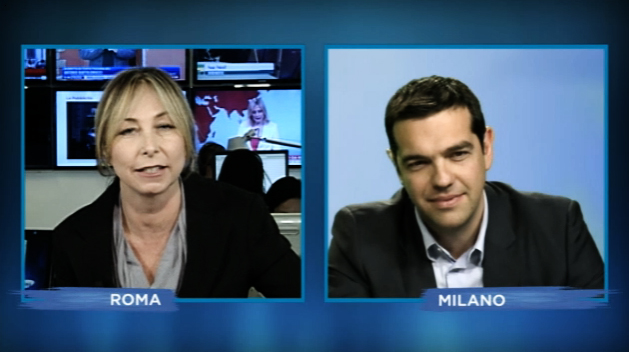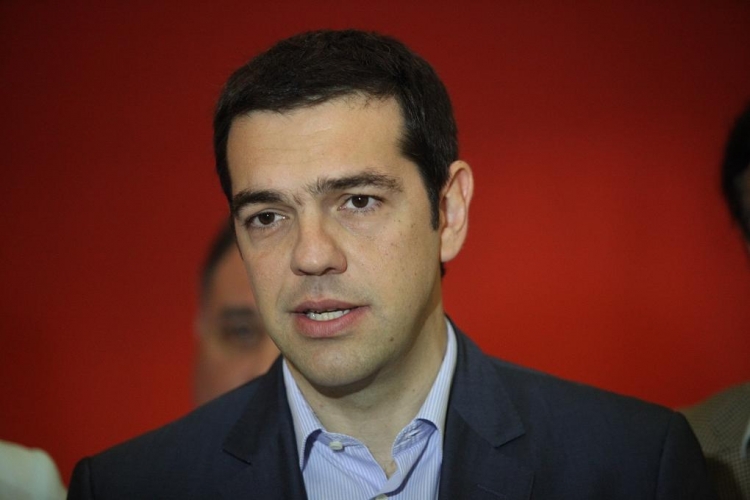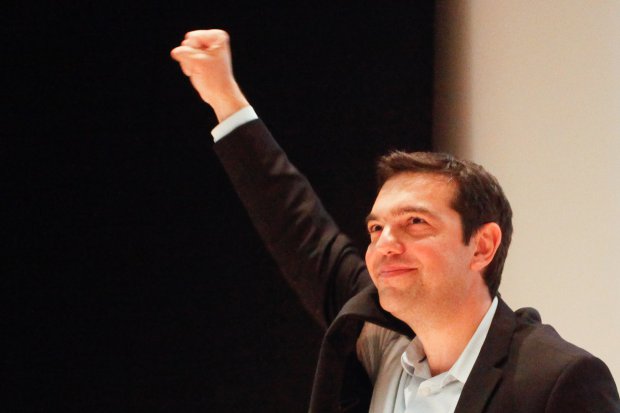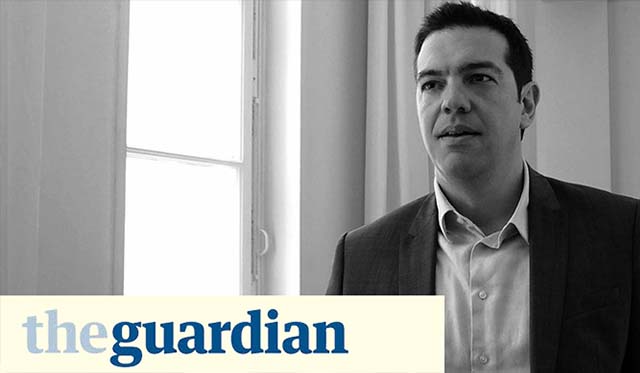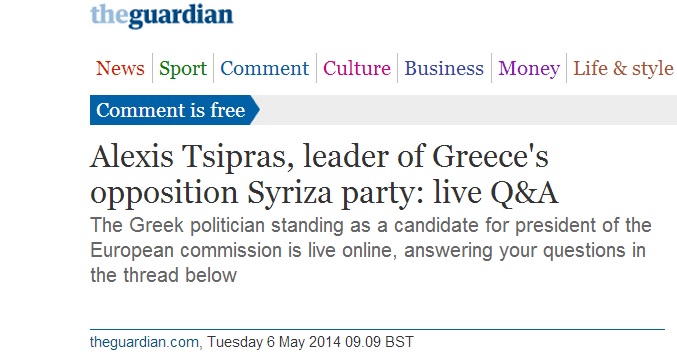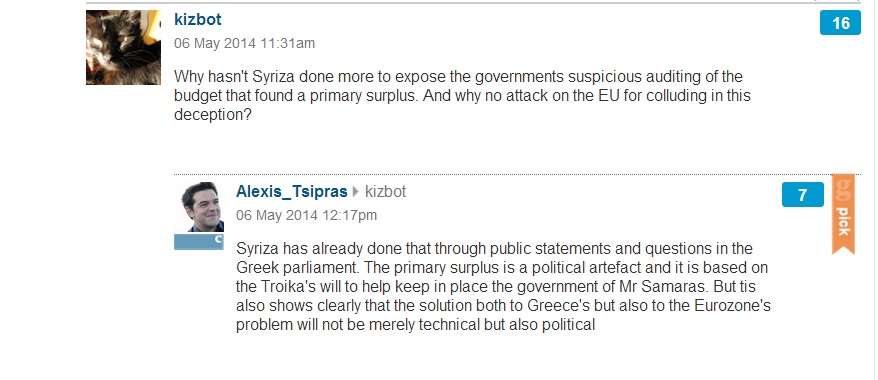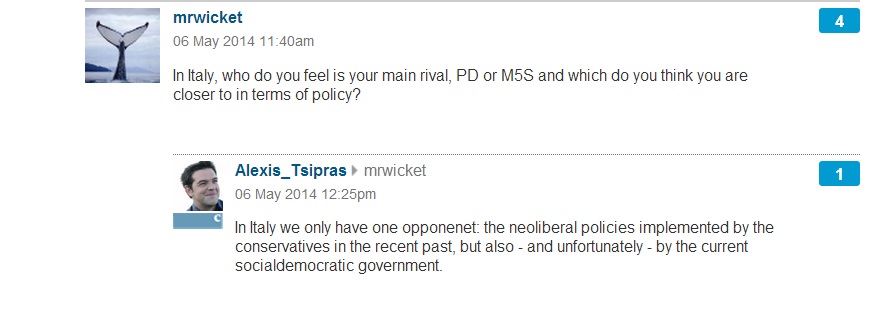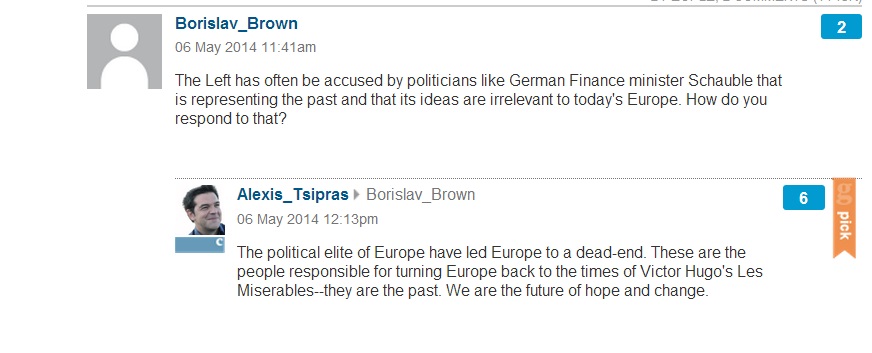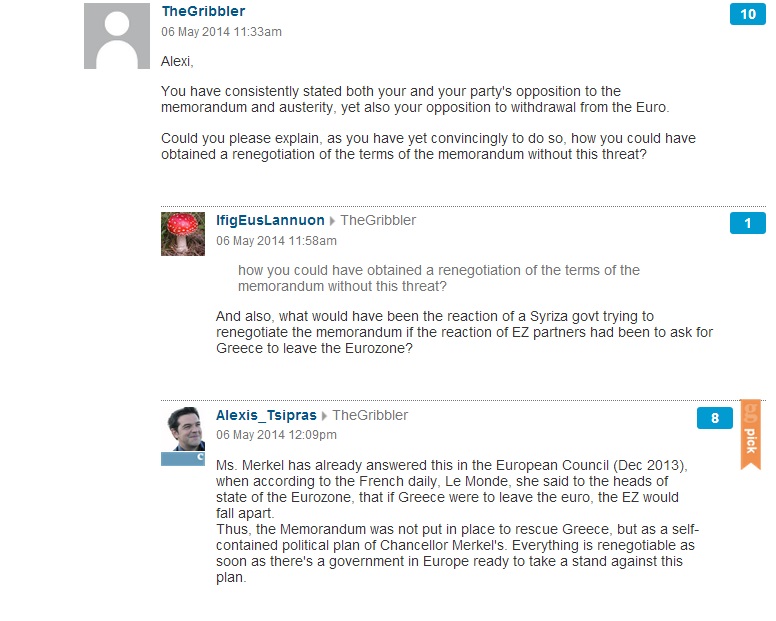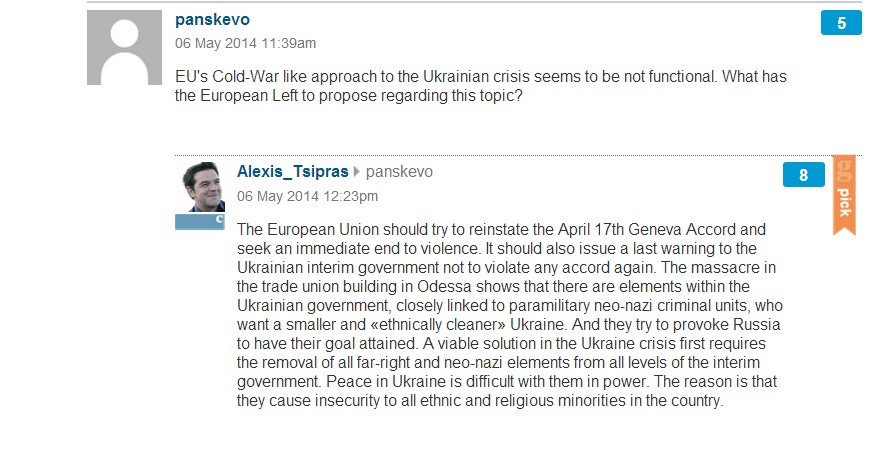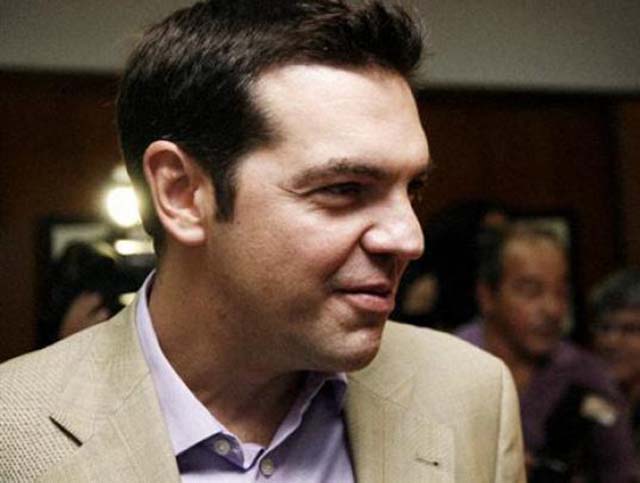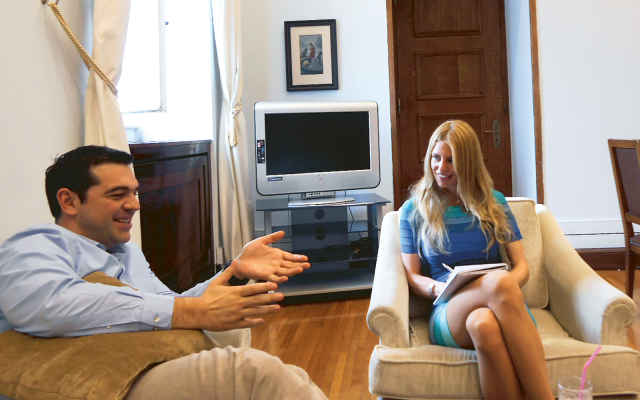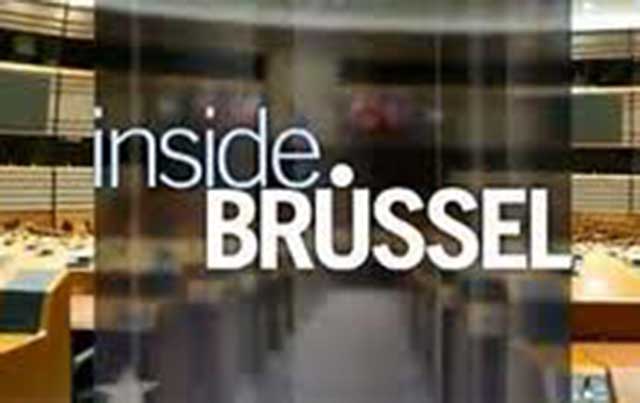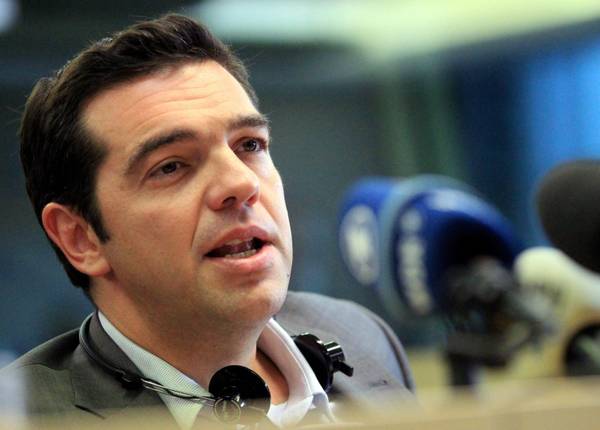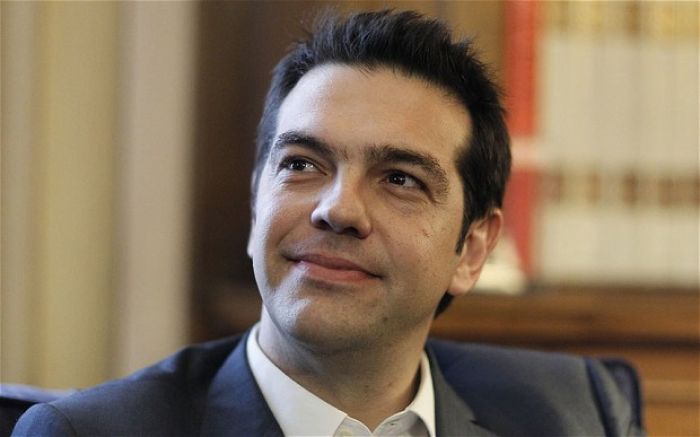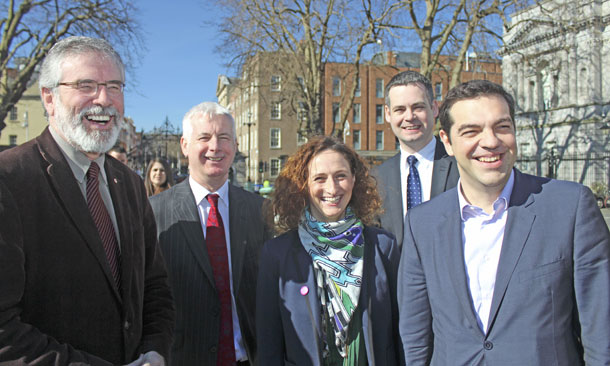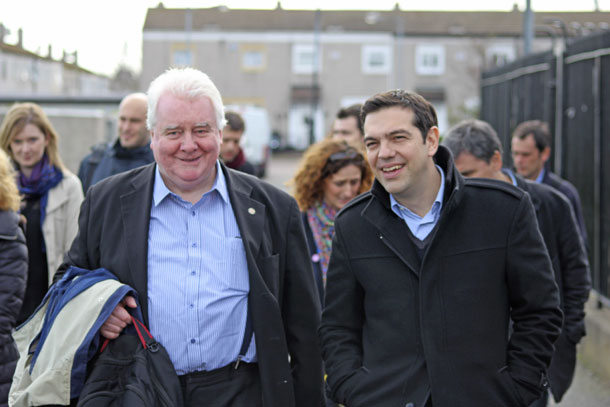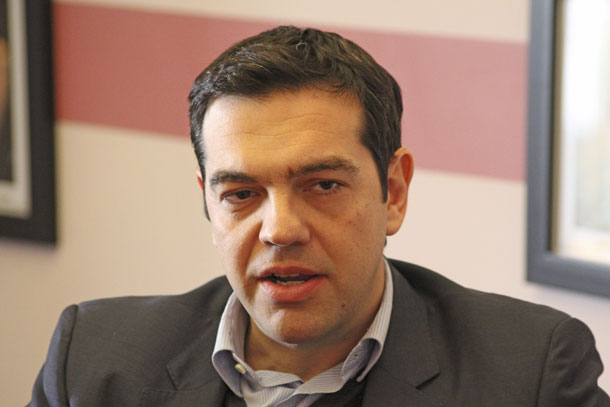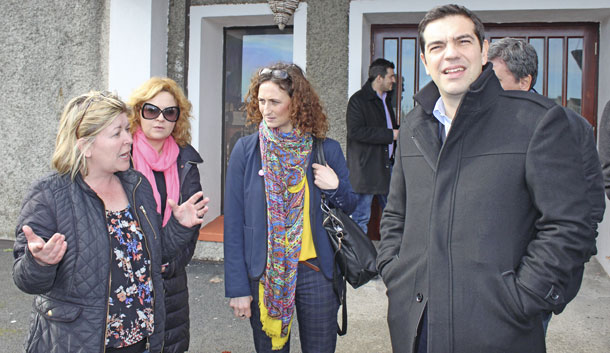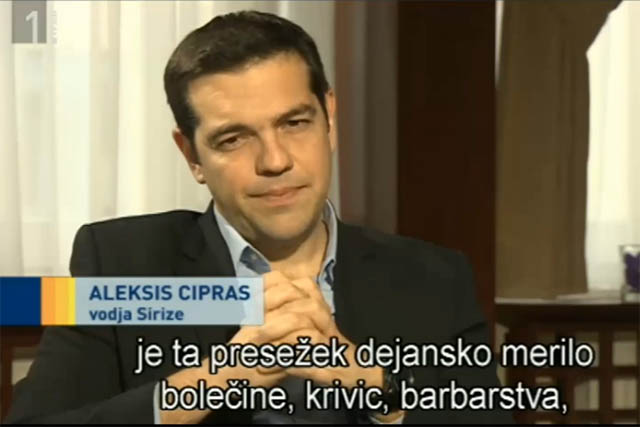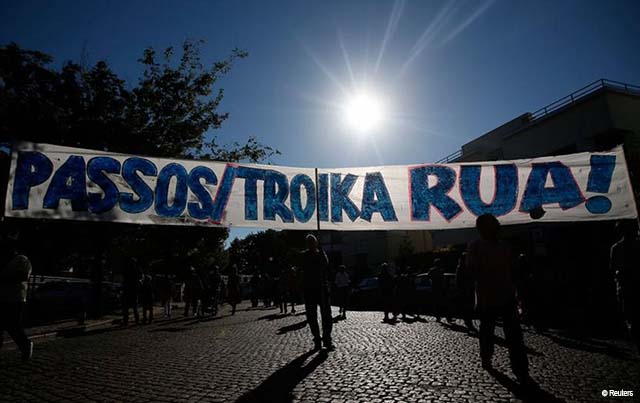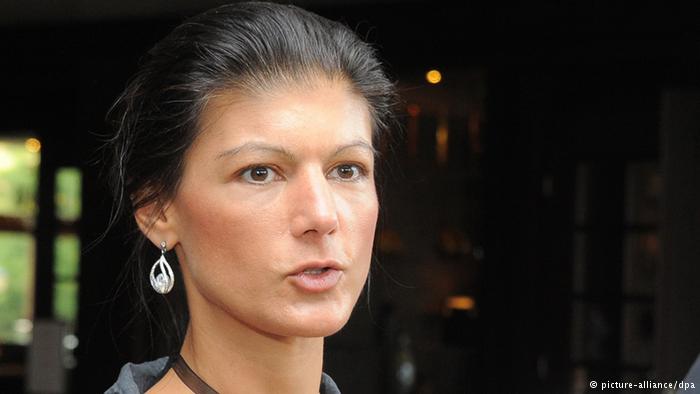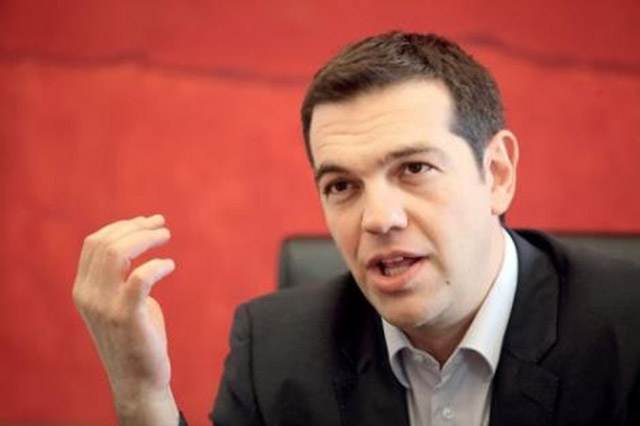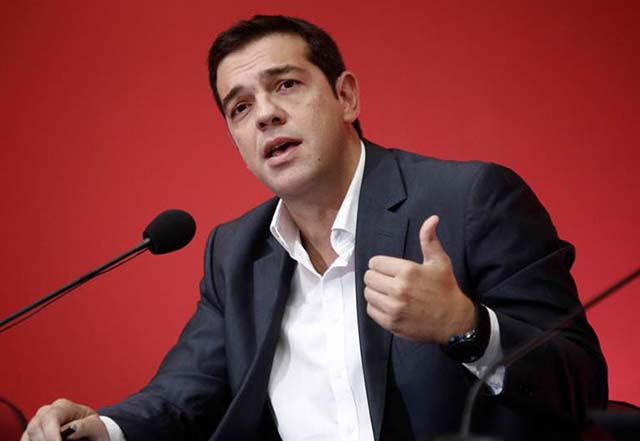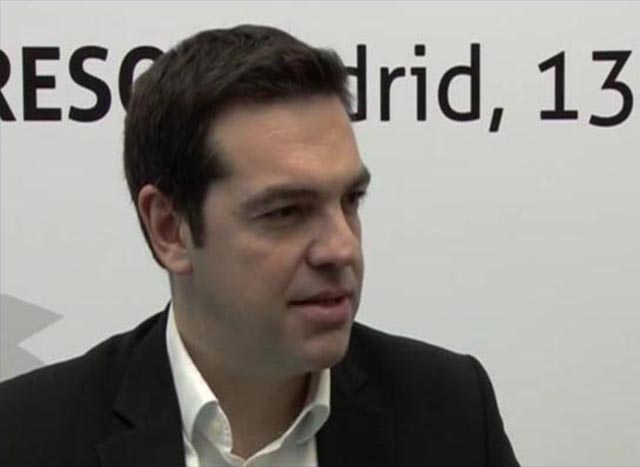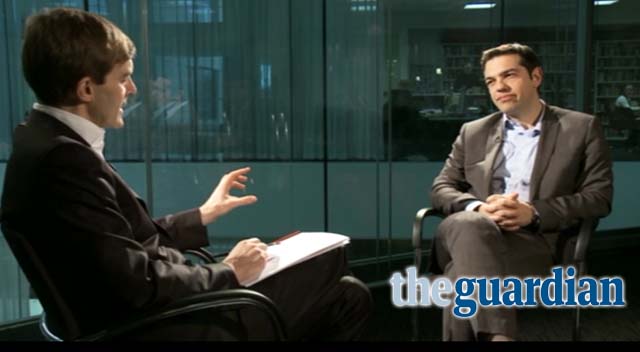- Details
-
Category: INTERVIEWS
-
Published: Tuesday, 11 February 2014 09:20
Five year into the sovereign debt crisis. How do you judge the European response? What would you have done different?
The recipe for dealing on the part of the European leadership with the debt crisis is going to be taught in economics courses in a few years as a negative example to be avoided.
First of all, the debt crisis is not solely the result of an erroneous developmental model of over-consumption through loans, which is basically what happened in Greece. It is primarily the result of the limits and the asymmetries inherent in the monetary union. Therefore, it is not a crisis of separate countries, Greece or Italy, etc, as it is purposefully being declared by some people in the European Union.
The political establishment in Europe has responded to a European debt crisis through the policy of austerity—of the so-called “domestic devaluation”—which actually worsened it. It has done so for the sole purpose of salvaging the European banks which preserved the sovereign bonds of the over-indebted countries. They care very little if as a result there would be an increase in the ratio between public debt and GDP. As it has been accurately observed by Jurgen Habermas, only this previous Sunday in Potsdam, the management of the crisis “does not only fail to tackle the causes behind the crisis, but actually involves a danger of ending up with a German Europe.” It is characteristic that throughout the duration of the Memoranda and because of the austerity, the Greek public debt is not simply unsustainable—it has in fact gone out of control.
Therefore, what should have happened from the start is a “European Debt Conference” designed to settle comprehensively, credibly, and definitively the sustainability of debt of the countries in the Euro-zone, using the “London Debt Conference” of 1953 which regulated Germany’s post-war debt thereby giving it the necessary impulse for growth and, so, opened up the road to what came to be known as Germany’s “economic miracle.” It happened through the elimination of a good part of its debt and with a “growth stipulation” attached to the remaining part. And with an end to austerity at the same time. A significant role could be played by the European Central Bank in the management of the debt, if it would act as a real central bank, as, for example, in the case of the U.S.A., namely as a lender of last resort to countries too, and not only to banks. At the same time, there should have been adopted from the very beginning a different model of economic policy placing emphasis on the strengthening of active demand and growth, centered on public investments in every member-state of the Euro-zone. At a European level, it was necessary and is now urgent to adopt a kind of European ‘New Deal’ and to take all necessary measures for precluding a similar financial and credit crisis in the future, via the legislation, among other things, of a “Glass-Steagall European legislative act” for the purpose of separating between commercial and investment activities—and hence between their respective risks—of the banks.
Instead of all that, the European establishment saw an opportunity in the crisis to re-write the post-war European political economy books. To impose a model of neo-liberal capitalism by launching an unprecedented assault against the world of labor, and by dismantling also the post-war social contract.
It fails to tackle the underlying causes of the crisis. It attacks democracy and settles scores with History. This dangerous neo-liberal vengefulness towards History must come to an end in the elections of May 25. We, the citizens of Europe, are taking our own destiny into our hands again.
Greece and the fiscal compact. Mr. Schauble suggests that austerity in Greece is starting to work. You have a primary account surplus, maybe Greece GDP could grow in 2014. What do you think of these statements?
Indeed, the Greek government has presented an accounting primary surplus for 2013, which however is simultaneously is also the measurement of social disaster. The way it has been achieved renders it unsustainable. This is not asserted simply by SYRIZA. Even the state’s budget authority in parliament, in its trimester report, published a few days ago, makes the same observation. For example, it refers to it as a contribution to the surplus, namely the constraint of spending in the program of public investment by 200 million Euros by comparison to the 2013 target. In other words, the postponement of growth has contributed to this surplus. What is worse is that the social cost of this surplus amounts to an unheard of for a European country at times of peace humanitarian crisis; one where 30% of the labor-force is out of work and 35% of the population faces the danger of poverty and social exclusion. With daily images both in Athens and in other major urban centers of well-dressed people looking for food inside the garbage cans. And with the closing of hospitals and the merging of schools. It is no accident, therefore, that as the poverty deepens, the surplus increases too
With regards to whether the country is going to return to a growth course during 2014, that is something claimed only by the government and the troika. On the contrary, OOCD, the German Council of Economic Experts, as well as the institutional economic adviser to the Greek government—the Center of Planning and Economic Research—are forecasting the continuation of the depression. But the point is not to meet the target of a temporary increase in the percentage of the GDP a little above zero. The extent of the productive and social disaster is so great that Greece needs many years of muscular and socially just growth in order to stand on her feet.
Populist movements are on the rise in the continent. Why and what could be done to prevent their success in next elections? Why Golden Dawn is still rated as the third party in Greece, notwithstanding Pavlos Fyssas’s murder and the arrest of its leaders?
The current rise in Europe of the extreme and the populist Right, as well as that of neo-Nazism, are the political products of neo-liberalism. And while it remains the same so will the phenomenon that you are describing remain undiminished. Populism amounts to cheap words and targets. It is the regress of reason in the face of anger and despair. It is the psychological facility with which some people channel their anger towards the weaker ones and the immigrants.
“Golden Dawn” is not just an extreme right-wing party in Europe. It is a neo-Nazi criminal organization. From a mere 0,3% in the 2009 elections, it reached 7% in 2012, all within the three years of memorandum-based austerity. That is a country which still bears open wounds inflicted by the barbarity of Nazism. One reason that neo-Nazism is flourishing in such a country has to do with a deliberate mitigation of memory about the Nazis and their allies, as explained by the German-Greek historian Hagen Fleischer. Another reason is the despair and anger that reigns among a portion of the population, leading them to the choice of punishment against the political system at large. However, the extreme right-wing is an anti-systemic political force only in words. In order to discover the culprit behind the crisis they blame immigration, not neo-liberalism and the austerity. They have close and affectionate affinities with the economic oligarchy in Greece. For that reason, we believe that they are simply the long arm, the replacement forces at the system’s service, in view of an imminent political change through a SYRIZA government.
What does Europe need to become a true union?
We have repeatedly pointed out that the united Europe will be democratic or it will simply not be. Europe today needs to come out of the long night of neo-liberalism and back into the light of Democracy. It needs a democratic re-foundation in the principles of solidarity and politics—not just the mere institutional equality among member-states. We have to broaden the citizens’ participation in the decision making and the formation of common policies. We have to strengthen the institutions through an immediate democratic legitimacy, like the national parliaments and the European parliament. We have to stop austerity in order to regain democracy; to liberate the Euro-zone from the extreme constraints of the fiscal treaty and secure the transference of national sovereignty at a European level will not result in a loss in democracy. The European institutions of implementation of common policies need to be transparent and under the control of the Parliaments and the citizens with regards to their functions. The task of a democratic, social and ecological Europe is ours. It is for such a Europe that it is worth struggling for.
Der Spiegel crowned you as Europe’s Enemy number 1. What’s your answer?
It all depends on which Europe is one defending. Is it the Europe of the markets and the social inequalities; the one that divides and keeps divided its peoples—in that case, surely, we are its biggest enemy. But for the Europe of solidarity, social cohesion, democracy, and for the Europe of the peoples we are the only hope. The European Left is the choice of dignity, growth and reconstruction—the choice of Democracy.
Who are now Europe’s enemies?
It’s the neo-liberalism that poses the greatest threat to Europe. The crisis has made that plain. The policies of the European populist Right, which are unfortunately followed closely by social-democracy, are actually threatening the European edifice.
Why should you vote Alexis Tsipras and not Martin Schulz?
Because the European Left candidacy is the only hope really for change in Europe. It is a candidacy that combines the demands of the world of labor and culture, in the North, the South, on the East and the West, into one basic program for the democratic re-organization of the Euro-zone and for the democratic re-foundation of the European Union. It is the candidacy of a progressive solution to the crisis—it is not the candidacy of the continuation of the crisis. My friend Martin Schulz is especially likable as a person, but in his case the entire strategic dead-end is personified of the European social-democracy. It’s the dead-end reached by an active adoption of the neo-liberal consensus. No matter how paradoxical it may sound, for the last two decades the social-democracy in Europe has been participating in the dismantling of the post-war social contract, which itself had inspired and co-authored. For that reason it has at this point been severed from its traditional social base. There are many who say that social-democracy should become as radical as reality itself today. Instead, we ask them to simply to stop being a part of the crisis and become a part of its solution, by making a necessary turn left. True, you cannot create the new by using old material. You cannot defend a different prospect than the one under austerity for Europe and at the same time to be Ms Merkel’s accomplice.
A group of Italian intellectual is supporting your bid to be E.U. president? What do you think of their support? Which are the conditions for your “Yes”?
It is really an honor to have received this proposition for the formation of an open, democratic and participatory ballot of the Italian Left, the movements and the society of the citizens—of a ‘Tsipras List’ as it has become codified. For such a novel endeavor to prove hopeful and successful we must proceed decisively but also cautiously. This list has got to be formed from the bottom up, with the initiative of the movements, the intellectuals, the society of citizens. I think it’s something that is already happening. The citizens are self-organizing in every corner of Italy. It is a list of citizens’ self-organization—something very encouraging. At the same time, this effort is going to have to exclude exclusions. To encourage the participation and support by simple citizens first and foremost, but also by all collectivities and organized forces that may require it. Because the ‘success story’ of SYRIZA teaches us that at times of crisis left and radical is that which succeeds to unite. So, let’s put our differences to the side by taking each a step back, in order to take several steps forward together.
What do you think of Movimento 5 stelle and Beppe Grillo? And what about Matteo Renzi? Could you work with both of them for a different Continent?
I wish to make clear that it is not my intention to interfere in the domestic Italian political affairs, nor is it to lead some new party on the Italian political stage. You see, the new list, under formation currently, is not a political party but a coalition of social and political forces with the express goal to change the balance of forces in Europe. With Matteo Renzi and Beppe Grillo, it is true, I have on different questions with each rather different views. However, I will not hesitate to request their collaboration if, as Greece’s prime minister, I come to lead some hard negotiation process in the European Union on behalf not only of the Greek people but of the entire European south. At this moment, however, my candidacy in view of the European elections comes with a crucial question: “Which Europe do we want and under which balance of forces?” It is a question which, on the one hand, Renzi answers by ‘I want the same Europe with the same balance’, while Grillo, on the other, by ‘I don’t care about Europe, let it go whichever way’. Both answers are, I think, wrong and inadequate.
Syriza is leading in Greek polls. What would be your first move if you were prime minister? Do you hope in early elections and when?
SYRIZA has repeatedly asked for a resort to the people’s will in the ballot. That for the reason that no day goes by without a confirmation between a discrepancy between the government’s majority and the popular will. Mr Samaras has now the people opposite him because he does that himself, through his own policy. We have also repeatedly stressed that the first act of a SYRIZA government will be the ending of austerity and the start of a collective and comprehensive effort, through the active mobilization of the people and all productive forces in the country for its reconstruction and for growth. 2014 will be an election year. It will be the year of the reconstitution of both the popular and the national sovereignty, via a government of the Left, a government of SYRIZA. And the first thing to do will be to request the re-negotiation with our partners in the European Union, not only of the Greek austerity program, the failed memorandum, but also of the European policy of dealing with the crisis.
Are you in favour or not of a return of Greece to the drachma?
As you know the abandonment of the common currency and the monetary competition among countries and peoples in Europe is not our preferred choice. From this crisis we are not going to find a way out along the lines of the memoranda, or through a currency devaluation. We will find a way out through debt removal and a new social agreement. With a European New Deal for the financing of growth, the strengthening of employment and the social cohesion.
Alexis Tsipras
- Details
-
Category: INTERVIEWS
-
Published: Friday, 07 February 2014 14:17
“Η Ευρωπαϊκή Αριστερά” είναι “η μοναδική ελπίδα”, η επιλογή “της αξιοπρέπειας, της ανάπτυξης και της ανασυγκρότησης΄”, δήλωσε ο πρόεδρος του ΣΥΡΙΖΑ και υποψήφιος για την προεδρία της Κομισιόν, με το Κόμμα Ευρωπαϊκής Αριστεράς, Αλέξης Τσίπρας, σε συνέντευξή του στην ιταλική εφημερίδα Republica της Παρασκευής.
“Το 2014 θα είναι έτος βουλευτικών εκλογών”, η “χρονιά της αποκατάστασης της λαϊκής και εθνικής κυριαρχίας, με κυβέρνηση της Αριστεράς, με κυβέρνηση του ΣΥΡΙΖΑ”, δήλωσε κατηγορηματικά ο Αλέξης Τσίπρας, ενώ τόνισε ότι “το πρώτο πράγμα που θα κάνουμε θα είναι να ζητήσουμε την επαναδιαπραγμάτευση με τους εταίρους μας στην Ε.Ε., όχι μόνο του ελληνικού προγράμματος της λιτότητας, του αποτυχημένου μνημονίου, αλλά της συνολικής ευρωπαϊκής πολιτικής για την αντιμετώπιση της κρίσης”.
Διαβάστε ολόκληρη η συνέντευξη του Αλέξη Τσίπρα:
*Πέντε χρόνια μέσα σε μια κυρίαρχη κρίση χρέους. Πώς αξιολογείτε την ευρωπαϊκή ανταπόκριση; Τι διαφορετικό θα μπορούσατε να κάνατε;
Η συνταγή για την αντιμετώπιση της κρίσης χρέους από την ευρωπαϊκή ηγεσία, σε λίγα χρόνια θα διδάσκεται στις οικονομικές σχολές ως παράδειγμα προς αποφυγήν.
Κατ’ αρχάς η κρίση χρέους δεν είναι αποτέλεσμα μόνο ενός λανθασμένου αναπτυξιακού μοντέλου υπερκατανάλωσης με δανεικά, όπως συνέβη στην Ελλάδα. Είναι κυρίως το αποτέλεσμα των περιορισμών και των ασυμμετριών της νομισματικής ένωσης. Συνεπώς, δεν είναι κρίση μεμονωμένων κρατών, της Ελλάδας, της Ιταλίας, και άλλων, όπως σκόπιμα διακηρύσσουν διάφοροι στην Ευρωπαϊκή Ένωση.
Το πολιτικό κατεστημένο της Ευρώπης απάντησε σε μια ευρωπαϊκή κρίση χρέους με την πολιτική της λιτότητας – της λεγόμενης «εσωτερικής υποτίμησης» – η οποία την επιδείνωσε. Και το έκανε αυτό μόνο και μόνο για να διασώσει τις ευρωπαϊκές τράπεζες που διακρατούσαν κρατικά ομόλογα των υπερχρεωμένων χωρών. Λίγο τους απασχολεί ότι αυτό είχε ως συνέπεια την άνοδο στο λόγο δημόσιου χρέους προς το ΑΕΠ. Όπως, εύστοχα, παρατήρησε ο Γιούργκεν Χάμπερμας, μόλις την περασμένη Κυριακή στο Πότσδαμ, η διαχείριση της κρίσης «όχι μόνο δεν αντιμετωπίζει τα αίτια που την προκάλεσαν, αλλά κρύβει και τον κίνδυνο να πάμε σε μια γερμανική Ευρώπη». Είναι χαρακτηριστικό ότι, κατά τη διάρκεια των Μνημονίων και εξαιτίας της λιτότητας, το δημόσιο χρέος της Ελλάδας δεν έγινε απλώς μη βιώσιμο – βγήκε εκτός ελέγχου.
Συνεπώς, αυτό που έπρεπε να είχε γίνει από την αρχή είναι μια «Ευρωπαϊκή Διάσκεψη Χρέους» για τη συνολική, αξιόπιστη και οριστική ρύθμιση της βιωσιμότητας στο δημόσιο χρέος των χωρών της Ευρωζώνης, στο πρότυπο της «Διάσκεψης του Λονδίνου για το Χρέος» το 1953, που ρύθμισε το χρέος της μεταπολεμικής Γερμανίας και της έδωσε την αναγκαία αναπτυξιακή ώθηση, άνοιξε, δηλαδή, το δρόμο σ’ αυτό που ονομάστηκε «οικονομικό θαύμα» της Γερμανίας. Με τη διαγραφή μεγάλου μέρους του και «ρήτρα ανάπτυξης» για το υπόλοιπο. Και, παράλληλα, με τερματισμό της λιτότητας. Σημαντικό ρόλο στη διαχείριση του χρέους θα μπορούσε να αναλάβει και η Ευρωπαϊκή Κεντρική Τράπεζα, λειτουργώντας ως πραγματική κεντρική τράπεζα, όπως, για παράδειγμα στις ΗΠΑ, δηλαδή ως δανειστής ύστατης καταφυγής και για τα κράτη – όχι μόνο για τις τράπεζες. Ταυτόχρονα θα έπρεπε να έχει υιοθετηθεί, από την αρχή, ένα διαφορετικό μοντέλο οικονομικής πολιτικής, με έμφαση στην ενίσχυση της ενεργού ζήτησης και της ανάπτυξης και με επίκεντρο τις δημόσιες επενδύσεις σε κάθε κράτος-μέλος της Ευρωζώνης. Σε ευρωπαϊκό επίπεδο, ήταν αναγκαία και τώρα είναι επείγουσα η υιοθέτηση ενός ευρωπαϊκού «New Deal» και η λήψη όλων των αναγκαίων μέτρων για την αποτροπή μιας παρόμοιας χρηματοπιστωτικής κρίσης στο μέλλον, με τη νομοθέτηση, ανάμεσα σε άλλα, μιας «ευρωπαϊκής νομοθετικής πράξης Glass-Steagall» για το διαχωρισμό των εμπορικών και επενδυτικών δραστηριοτήτων – και των αντίστοιχων κινδύνων – στις τράπεζες.
Αντί γι’ αυτά, το ευρωπαϊκό κατεστημένο είδε την κρίση ως ευκαιρία να ξαναγράψει τη μεταπολεμική ευρωπαϊκή πολιτική οικονομία. Να επιβάλει το μοντέλο του νεοφιλελεύθερου καπιταλισμού, εξαπολύοντας μια πρωτοφανή επίθεση σε βάρος του κόσμου της εργασίας και διαρρηγνύοντας το μεταπολεμικό κοινωνικό συμβόλαιο.
Δεν αντιμετωπίζει τα αίτια της κρίσης. Επιτίθεται στη Δημοκρατία και ξεκαθαρίζει λογαριασμούς με την Ιστορία. Αυτή η επικίνδυνη νεοφιλελεύθερη εκδίκηση προς την Ιστορία πρέπει να λάβει τέλος στις ευρωπαϊκές εκλογές της 25ης Μαΐου. Εμείς, οι πολίτες της Ευρώπης, κρατάμε ξανά τις τύχες μας στα χέρια μας.
*Αναφορικά με την Ελλάδα και το Μνημόνιο. Ο κ. Σόιμπλε είναι της άποψης ότι η πολιτική λιτότητας στην Ελλάδα έχει αρχίσει να δουλεύει. Εχετε ένα πρωτογενές πλεόνασμα και ίσως το ελληνικό ΑΕΠ να παρουσιάσει αύξηση το 2014. Τι πιστέυετε για όλα τα παραπάνω;
Πράγματι, η ελληνική κυβέρνηση έχει εμφανίσει ένα λογιστικό πρωτογενές πλεόνασμα για το 2013, το οποίο όμως ταυτόχρονα είναι και το μέτρο της κοινωνικής καταστροφής. Ο τρόπος με τον οποίο έχει επιτευχθεί, το καθιστά μη διατηρήσιμο. Και το ότι είναι μη διατηρήσιμο δεν το ισχυρίζεται απλώς ο ΣΥΡΙΖΑ. Το επισημαίνει το Γραφείο Προϋπολογισμού του Κράτους στη Βουλή, στην τελευταία τριμηνιαία έκθεσή του, η οποία δόθηκε στη δημοσιότητα πριν από λίγες μέρες.
Για παράδειγμα, αναφέρει ως συμβολή στο πλεόνασμα τον περιορισμό των δαπανών του προγράμματος δημόσιων επενδύσεων κατά €200 εκατ. σε σχέση με το στόχο για το 2013. Δηλαδή, η αναβολή της ανάπτυξης συνέβαλε στο πλεόνασμα. Το χειρότερο όμως είναι πως το κοινωνικό κόστος αυτού του πλεονάσματος είναι μια πρωτοφανής για ευρωπαϊκή χώρα σε καιρό ειρήνης ανθρωπιστική κρίση, με το 30% του εργατικού δυναμικού άνεργο και το 35% του πληθυσμού να αντιμετωπίζει τον κίνδυνο της φτώχειας και του κοινωνικού αποκλεισμού. Με καθημερινές τις εικόνες στην Αθήνα και τα μεγάλα αστικά κέντρα καλοντυμένων ανθρώπων να ψάχνουν στα σκουπίδια για τροφή. Με το κλείσιμο νοσοκομείων και τη συγχώνευση σχολείων. Δεν είναι, λοιπόν, τυχαίο ότι, όσο η φτώχεια μεγαλώνει, τόσο μεγαλώνει και το πρωτογενές πλεόνασμα
Ως προς το αν η χώρα θα ξαναγυρίσει στην ανάπτυξη το 2014, αυτό μόνον η κυβέρνηση και η τρόικα το ισχυρίζονται. Αντίθετα, ο ΟΟΣΑ, το γερμανικόΣυμβούλιο Οικονομικών Εμπειρογνωμόνων, καθώς επίσης και ο θεσμικός, οικονομικός σύμβουλος της ελληνικής κυβέρνησης – το Κέντρο Προγραμματισμού και Οικονομικών Ερευνών – προβλέπουν παράταση της ύφεσης. Αλλά το θέμα δεν είναι να πετύχουμε ένα προσωρινό ποσοστό αύξησης του ΑΕΠ λίγο πάνω από το μηδέν. Η έκταση της παραγωγικής και κοινωνικής καταστροφής είναι τέτοια, που η Ελλάδα χρειάζεται πολλά χρόνια ισχυρής και κοινωνικά δίκαιης ανάπτυξης για να ορθοποδήσει.
*Τα λαϊκιστικά κινήματα βρίσκονται σε έξαρση στην Ευρώπη. Τι και για ποιό λόγο θα μπορούσε να προλάβει την επιτυχία τους στις επόμενες εκλογές; Γιατί η Χρυσή Αυγή εξακολουθεί να παραμένει τρίτο κόμμα, παρά το γεγονός της δολοφονίας του Παύλου Φύσσα και της σύλληψής των ηγετών της;
Η άνοδος της άκρας και λαϊκιστικής δεξιάς και του νεοναζισμού στην Ευρώπη είναι το πολιτικό προϊόν του νεοφιλελευθερισμού.Και όσο δεν αλλάζει τόσο το φαινόμενο που περιγράφετε δεν θα υποχωρεί. Ο λαϊκισμός είναι ο εύκολος λόγος και ο εύκολος στόχος. Η υποχώρηση της λογικής στην οργή και την απελπισία. Η ψυχολογική ευκολία με την οποία κάποιοι άνθρωποι διοχετεύουν αυτήν την οργή στους αδύνατους, στους μετανάστες.
Η «Χρυσή Αυγή» δεν αποτελεί απλώς ένα ακόμα ακροδεξιό κόμμα στην Ευρώπη. Είναι μια νεοναζιστική εγκληματική οργάνωση. Από το 0,3% των εκλογών του 2009 έφτασε το 2012 στο 7%, μέσα στην τριετία της μνημονιακής λιτότητας. Και μάλιστα σε μια χώρα, η οποία έχει ακόμα ανοιχτές πληγές από τη θηριωδία του ναζισμού. Ένας λόγος που ο νεοναζισμός ανθεί σε μια τέτοια χώρα είναι και η εσκεμμένη άμβλυνση της μνήμης για τους ναζί και τους συμμάχους τους, όπως την εξηγεί ο Γερμανοέλληνας ιστορικός Χάγκεν Φλάισερ.
Ένας άλλος απελπισία και οργή που επικρατεί σε μεγάλο μέρος των λαϊκών στρωμάτων και τα οδηγεί στην επιλογή της τιμωρίας του πολιτικού συστήματος εν γένει. Ωστόσο η άκρα δεξιά μόνο στα λόγια είναι αντισυστημική δύναμη. Για τη κρίση ενοχοποιεί τη μετανάστευση για την κρίση – όχι το νεοφιλελευθερισμό και τη λιτότητα. Με την οικονομική ολιγαρχία στην Ελλάδα έχει σχέσεις στοργής. Για αυτό και πιστεύουμε ότι δεν είναι παρά το μακρύ χέρι, η εφεδρεία του συστήματος, απέναντι στην επερχόμενη πολιτική αλλαγή με κυβέρνηση του ΣΥΡΙΖΑ.
*Τι χρειάζεται η Ευρώπη για να γίνει μια αληθινή «ένωση»;
Έχουμε κατ’ επανάληψη επισημάνει ότι η ενωμένη Ευρώπη ή θα είναι δημοκρατική ή δεν θα υπάρξει. Η Ευρώπη σήμερα χρειάζεται να βγει από τη μεγάλη νύχτα του νεοφιλελευθερισμού ξανά στο φως της Δημοκρατίας. Χρειάζεται δημοκρατική επανίδρυση στις αρχές της αλληλεγγύης και της πολιτικής –και όχι απλά θεσμικής- ισότητας ανάμεσα στα κράτη-μέλη. Πρέπει να διευρύνουμε τη συμμετοχή των πολιτών στη λήψη αποφάσεων και στο σχεδιασμό των κοινών πολιτικών.
Πρέπει να ενδυναμώσουμε τους θεσμούς με άμεση δημοκρατική νομιμοποίηση, όπως είναι τα εθνικά κοινοβούλια και το Ευρωπαϊκό. Πρέπει να σταματήσουμε τη λιτότητα για να ξανακερδίσουμε τη δημοκρατία, να απεγκλωβίσουμε την Ευρωζώνη από τους ακραίους περιορισμούς του δημοσιονομικού συμφώνου και να διασφαλίσουμε ότι η μεταφορά εθνικής κυριαρχίας σε ευρωπαϊκό επίπεδο δεν συνεπάγεται και απώλεια δημοκρατίας. Οι ευρωπαϊκοί θεσμοί εφαρμογής κοινών πολιτικών πρέπει να είναι διαφανείς και ελεγχόμενοι στη λειτουργία τους από τα Κοινοβούλια και τους πολίτες. Δικός μας στόχος είναι η δημοκρατική, κοινωνική και οικολογική Ευρώπη. Για μια τέτοια ενωμένη Ευρώπη αξίζει να αγωνιστούμε.
*Το DerSpiegel σας έχει ανακηρύξει ως τον υπ΄αριθμόν ένα εχθρό της Ευρώπης. Τι απαντάτε σ΄αυτό;
Εξαρτάται ποια Ευρώπη υπερασπίζεται κανείς. Για την Ευρώπη των αγορών και των κοινωνικών ανισοτήτων, για την Ευρώπη που διαιρεί και διχάζει τους λαούς, ναι πράγματι είμαστε ο μεγαλύτερος αντίπαλος. Για την Ευρώπη της αλληλεγγύης, της κοινωνικής συνοχής και της δημοκρατίας, για την Ευρώπη των λαών, είμαστε η μοναδική ελπίδα Η Ευρωπαϊκή Αριστερά είναι η επιλογή της αξιοπρέπειας, της ανάπτυξης και της ανασυγκρότησης, η επιλογή της Δημοκρατίας.
*Ποιοί είναι σήμερα οι εχθροί της Ευρώπης;
Ο νεοφιλελευθερισμός είναι η μεγάλη απειλή για την Ευρώπη. Η κρίση αυτό το έκανε σαφές. Η πολιτική της ευρωπαϊκής λαϊκής δεξιάς, που δυστυχώς ακολουθεί κατά πόδας η ευρωπαϊκή σοσιαλδημοκρατία, είναι που θέτει σε κίνδυνο το ευρωπαϊκό οικοδόμημα.
*Γιατί να ψηφίσει κανείς τον Αλέξη Τσίπρα και όχι τον Μάρτιν Σούλτς;
Γιατί η υποψηφιότητα της Ευρωπαϊκής Αριστεράς είναι η μόνη ελπίδα για αλλαγή στην Ευρώπη. Είναι υποψηφιότητα που συνθέτει τα αιτήματα του κόσμου της εργασίας και του πολιτισμού, στο Βορρά, το Νότο, την Ανατολή ή τη Δύση, σ’ ένα βασικό πρόγραμμα για τη δημοκρατική ανασυγκρότηση της Ευρωζώνης και τη δημοκρατική επανίδρυση της Ευρωπαϊκής Ένωσης.
Είναι η υποψηφιότητα της προοδευτικής λύσης στην κρίση – δεν είναι η υποψηφιότητα της συνέχισης της κρίσης. Ο φίλος μου Μάρτιν Σουλτς μου είναι ως άνθρωπος ιδιαίτερα συμπαθής, αλλά στο πρόσωπό του εκφράζεται το στρατηγικό αδιέξοδο της ευρωπαϊκής σοσιαλδημοκρατίας. Αδιέξοδο στο οποίο την έχει οδηγήσει η ενεργητική υιοθέτηση της νεοφιλελεύθερης συναίνεσης. Όσο παράδοξο κι αν ακούγεται, εδώ και περίπου δύο δεκαετίες, η ευρωπαϊκή σοσιαλδημοκρατία συμμετέχει στη διάρρηξη του μεταπολεμικού κοινωνικού συμβολαίου, το οποίο η ίδια ενέπνευσε και συνδιαμόρφωσε. Και για το λόγο αυτό έχει, πλέον, αποκοπεί από την παραδοσιακή κοινωνική και πολιτική της βάση. Πολλοί λένε ότι η σοσιαλδημοκρατία πρέπει να γίνει τόσο ριζοσπαστική όσο και η σημερινή πραγματικότητα. Εμείς απλά τη καλούμε να πάψει να είναι μέρος της κρίσης και να γίνει μέρος της λύσης, κάνοντας την αναγκαία στροφή προς τα’ αριστερά. Αλλά το καινούργιο δε μπορείς να το φτιάξεις με παλιά υλικά. Δε μπορείς να υπερασπίζεσαι μια διαφορετική προοπτική από αυτή της λιτότητας για την Ευρώπη και ταυτόχρονα να είσαι αγκαζέ και με τη κα Μέρκελ.
*Μια ομάδα Ιταλών διανοουμένων υποστηρίζει την υποψηφιότητά σας για την προεδρία της Ε.Ε. Τι πιστεύετε για τη στήριξη αυτή; Ποιοί είναι οι όροι για το «ναί» σας;
Είναι πράγματι τιμητική η πρόταση που μου έγινε για τη δημιουργία ενός ανοικτού, δημοκρατικού και συμμετοχικού ψηφοδελτίου της ιταλικής Αριστεράς, των κινημάτων και της κοινωνίας των πολιτών, μιας «Λίστας Τσίπρα», όπως έχει κωδικοποιηθεί. Για να αποδειχθεί, όμως, ελπιδοφόρο και πετυχημένο αυτό το πρωτότυπο εγχείρημα, οφείλουμε να προχωρήσουμε αποφασιστικά αλλά και προσεχτικά. Η λίστα αυτή πρέπει να συγκροτηθεί από τα κάτω, με πρωτοβουλία των κινημάτων, των διανοουμένων, της κοινωνίας των πολιτών. Αυτό νομίζω πως ήδη συμβαίνει. Οι πολίτες αυτό-οργανώνονται σε κάθε γωνιά της Ιταλίας.
Είναι μια λίστα πραγματικής αυτό-οργάνωσης των πολιτών. Και αυτό είναι πολύ ενθαρρυντικό. Ταυτόχρονα όμως η προσπάθεια αυτή θα πρέπει και να αποκλείει τους αποκλεισμούς. Να προτρέπει σε συμμετοχή και στήριξη πρώτα από όλα τους απλούς πολίτες, αλλά και απ’ όλες τις συλλογικότητες και τις οργανωμένες δυνάμεις που θα το θελήσουν. Διότι το success story του ΣΥΡΙΖΑ μας διδάσκει ότι στις μέρες της κρίσης αριστερό και ριζοσπαστικό είναι ότι ενώνει. Ας βάλουμε λοιπόν όλοι τις διαφορές μας στο πλάι, ας κάνουμε ένα βήμα πίσω προκειμένου να κάνουμε πολλά βήματα, μαζί, μπροστά.
*Τι πιστεύετε για το κίνημα των πέντε αστέρων του Μπέπε Γκρίλλο; Και τι για τον Ματέο Ρέντσι; Θα μπορούσατε να συνεργαστείτε και με τους δυο για μια διαφορετική Ευρώπη;
Θέλω να ξεκαθαρίσω ότι η πρόθεσή μου δεν είναι ούτε να παρέμβω στα Ιταλικά πολιτικά πράγματα, ούτε να ηγηθώ ενός νέου κόμματος στην Ιταλική πολιτική σκηνή. ΄Λλωστε η υπο διαμόρφωση λίστα δεν είναι ένα νέο κόμμα αλλά ένας συνασπισμός κοινωνικών και πολιτικών δυνάμεων με ειδικό σκοπό την αλλαγή των συσχετισμών στην Ευρώπη. Με τον Ματέο Ρέντζι και τον Πέπε Γκρίλο, άλλωστε, έχω σε διαφορετικά με τον καθένα ζητήματα, διαφορετικές προσεγγίσεις.
Ωστόσο δεν θα διστάσω να ζητήσω τη συνεργασία τους, αν ως πρωθυπουργός της Ελλάδας ηγηθώ μιας σκληρής διαπραγματευτικής διαδικασίας στην Ε.Ε. , για λογαριασμό όχι μόνο του Ελληνικού λαού αλλά ολόκληρου του Ευρωπαϊκού Νότου. Αυτή τη στιγμή, όμως, η υποψηφιότητά μου ενόψει των ευρωεκλογών θέτει ένα κρίσιμο ερώτημα: ¨Ποια Ευρώπη θέλουμε και με ποιους συσχετισμούς;¨ Ένα ερώτημα στο οποίο ο μεν Ρέντζι απαντά : ¨θέλω την ίδια Ευρώπη με τους ίδιους συσχετισμούς¨, ο δε Γκρίλο απαντά : ¨Δε με νοιάζει η Ευρώπη, ότι θέλει ας γίνει¨. Και οι δύο απαντήσεις, πιστεύω είναι λάθος και ανεπαρκείς.
*Ο ΣΥΡΙΖΑ έχει την πρωτιά στις δημοσκοπήσεις στην Ελλάδα. Ποιά θα ήταν η πρώτη σας κίνηση αν εκλεγόσασταν πρωθυπουργός; Ελπίζετε σε πρόωρες εκλογές και πότε;
Ο ΣΥΡΙΖΑ έχει επανειλημμένα ζητήσει προσφυγή στη λαϊκή ετυμηγορία. Και αυτό γιατί καθημερινά διαπιστώνεται η δυσαρμονία ανάμεσα στην κυβερνητική πλειοψηφία και τη λαϊκή θέληση. Ο κ. Σαμαράς έχει το λαό απέναντί του διότι ο ίδιος, με την πολιτική του, τον βάζει καθημερινά απέναντί του.
Έχουμε,επίσης, κατ’ επανάληψη υπογραμμίσει ότι η πρώτη πράξη της κυβέρνησης του ΣΥΡΙΖΑ θα είναι ο τερματισμός της λιτότητας και το ξεκίνημα μιας συνολικής και συλλογικής προσπάθειας, με την ενεργή κινητοποίηση του λαού και όλων των παραγωγικών δυνάμεων του τόπου, για την ανασυγκρότηση της χώρας και την ανάπτυξη. Το 2014 θα είναι έτος βουλευτικών εκλογών. Θα είναι η χρονιά της αποκατάστασης της λαϊκής και εθνικής κυριαρχίας, με κυβέρνηση της Αριστεράς, με κυβέρνηση του ΣΥΡΙΖΑ. Και το πρώτο πράγμα που θα κάνουμε θα είναι να ζητήσουμε την επαναδιαπραγμάτευση με τους εταίρους μας στην Ε.Ε., όχι μόνο του ελληνικού προγράμματος της λιτότητας, του αποτυχημένου μνημονίου, αλλά της συνολικής ευρωπαϊκής πολιτικής για την αντιμετώπιση της κρίσης.
*Είστε υπέρ ή κατά της επιστροφής της Ελλάδας στη Δραχμή;
Όπως γνωρίζετε δεν αποτελεί επιλογή μας η εγκατάλειψη του κοινού νομίσματος και ο νομισματικός ανταγωνισμός ανάμεσα στα κράτη και στους λαούς της Ευρώπης. Από τη κρίση δε θα βγούμε ούτε με εσωτερική υποτίμηση όπως θέλουν τα μνημόνια, ούτε με νομισματική υποτίμηση. Από τη κρίση θα βγούμε με διαγραφή χρέους και μια νέα κοινωνική συμφωνία. Με ένα Ευρωπαϊκό New Deal για τη χρηματοδότηση της ανάπτυξης, την ενίσχυση της απασχόλησης και της κοινωνικής συνοχής”.
